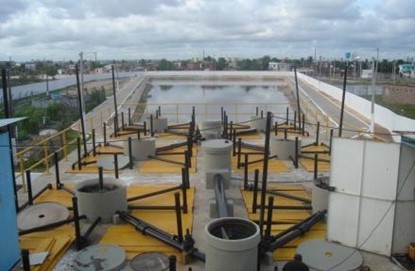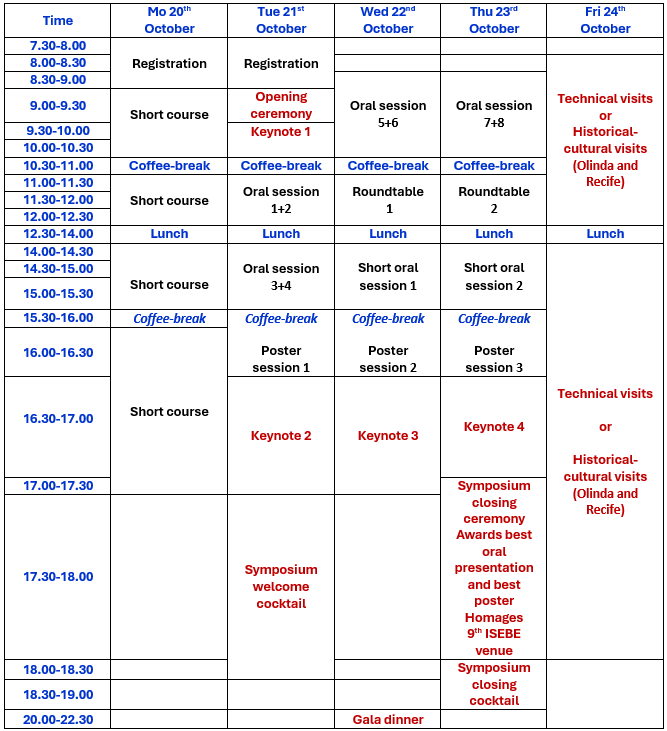The technical program of the 8ISEBE will be integrated by invited plenary presentations with recognized specialists on relevant topics, platform presentations, as well as poster sessions. In the program, there will be two pre-event short courses, each of 4 h, which will take place on Monday, October 20th, and technical visits on Friday, October 24th, 2025.

The main theme of the 8th ISEBE: Harnessing Microbial Potential to Address Critical Environmental Challenges
The Eighth International Symposium on Environmental Biotechnology and Engineering is themed “Harnessing Microbial Potential to Address Critical Environmental Challenges.” As the world faces increasing pressures from climate change, pollution, and resource scarcity, this event gathers an international community of researchers and experts to explore innovative microbial solutions for these urgent issues. Discussions will center on the role of microbial processes in climate change adaptation and mitigation, the development of advanced biorefinery technologies, and more efficient approaches to resource recovery, including the production of value-added chemicals from waste streams. The symposium will explore strategies for the remediation and management of emerging contaminants. It will also address the complexities of sustainable wastewater treatment and reuse, focusing on the latest approaches. Additionally, insights into the application of molecular biology tools will be highlighted, along with their use in wastewater-based epidemiology. The event will emphasize the adoption of cleaner production methods in industry and the creation of environmental management strategies that can meet regional needs. By fostering interdisciplinary dialogue and global perspectives, the symposium aims to highlight the crucial role of microbes in advancing environmental technologies and shaping a sustainable future across diverse contexts.
Topics:
- Climate Change Mitigation and Adaptation
- Biorefineries and Renewable Energy Systems
- Domestic and Industrial Wastewater Treatment Technologies
- Resource Recovery
- Green and Biomaterials Production (Including Biopolymers)
- Nutrient Removal and Recycling
- Water, Soil, and Air Pollution Monitoring and Control
- Occurrence and Fate of Emerging Contaminants (e.g., xenobiotics, nanoparticles, microplastics, pharmaceutical products, endocrine disruptors, pesticides)
- Soil, Sediment, and Aquifer Remediation
- Solid and Hazardous Waste Management and Treatment
- Water Reuse for Potable, Agricultural, and Industrial Applications
- Algal Biotechnology for Bioenergy and Pollution Control
- Nature-Based Solutions
- Microbial Ecology and Molecular Biology Tools in Environmental Engineering
- Ecotoxicology
- Wastewater-Based Epidemiology and Surveillance
- Modelling, Instrumentation, and Control
- Risk Assessment and Environmental Impact Analysis
- Environmental Management and Policy (Including Sustainability Analysis, Life Cycle Assessment, Clean Development Mechanisms)
- Emerging Topics in Environmental Biotechnology
Preliminary program

Oral session: 15 min (12 + 3). Short oral session: 5 min
